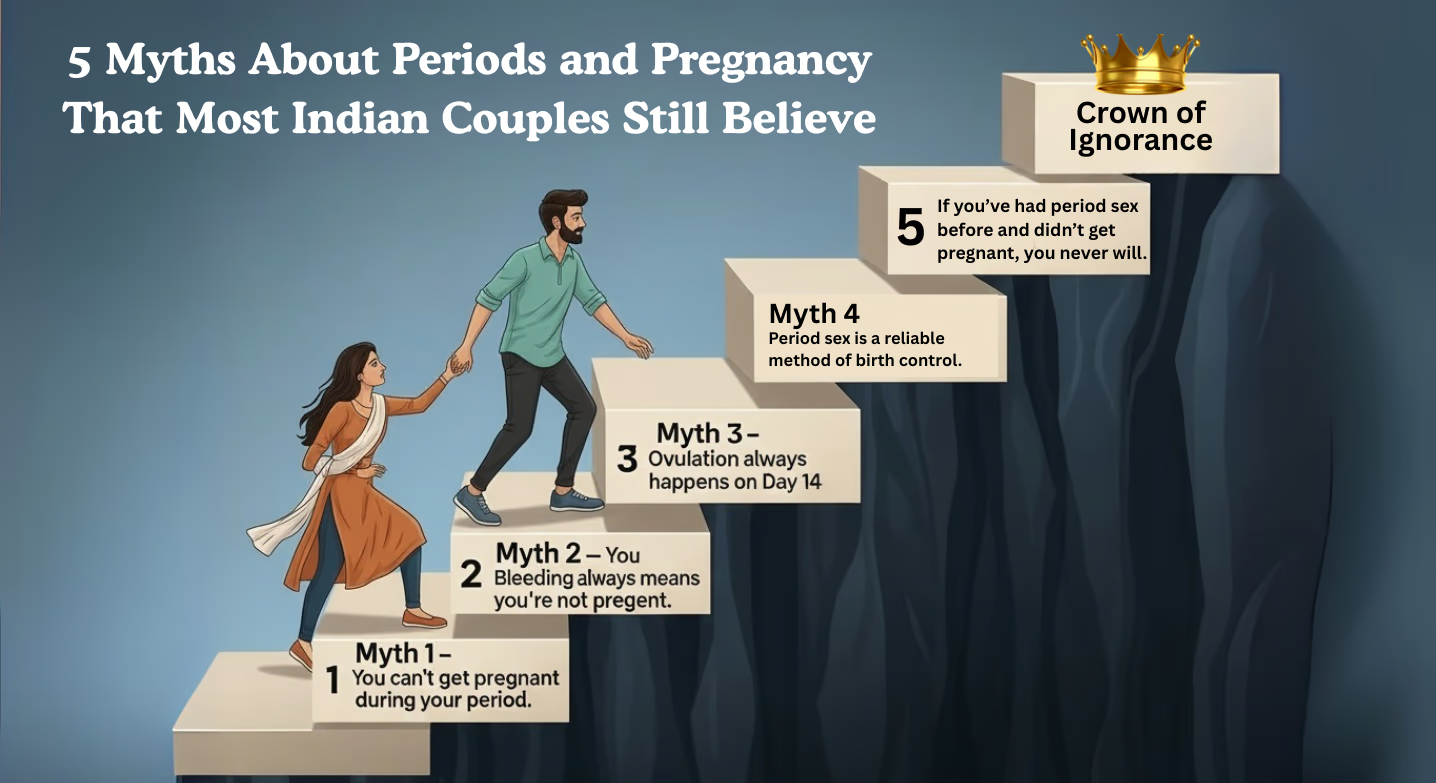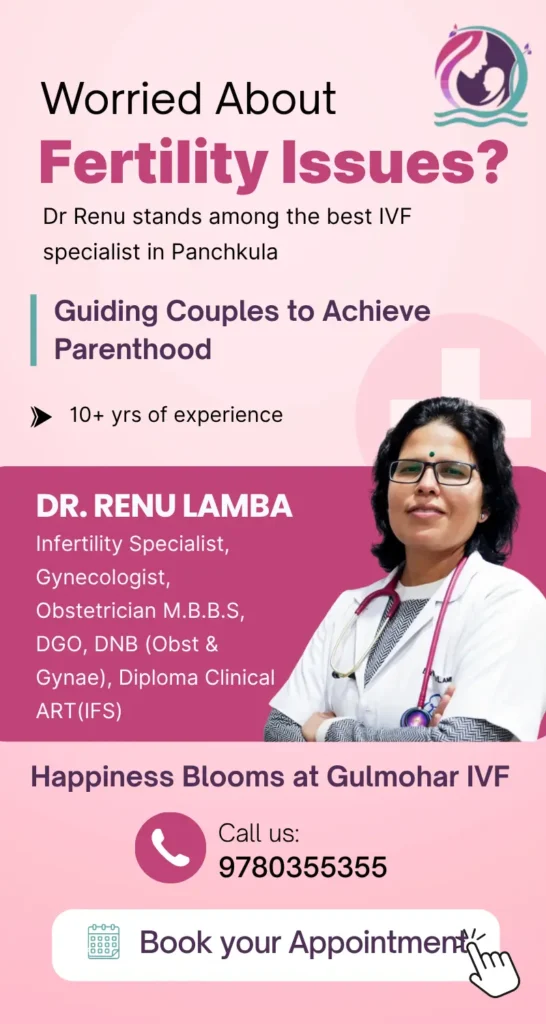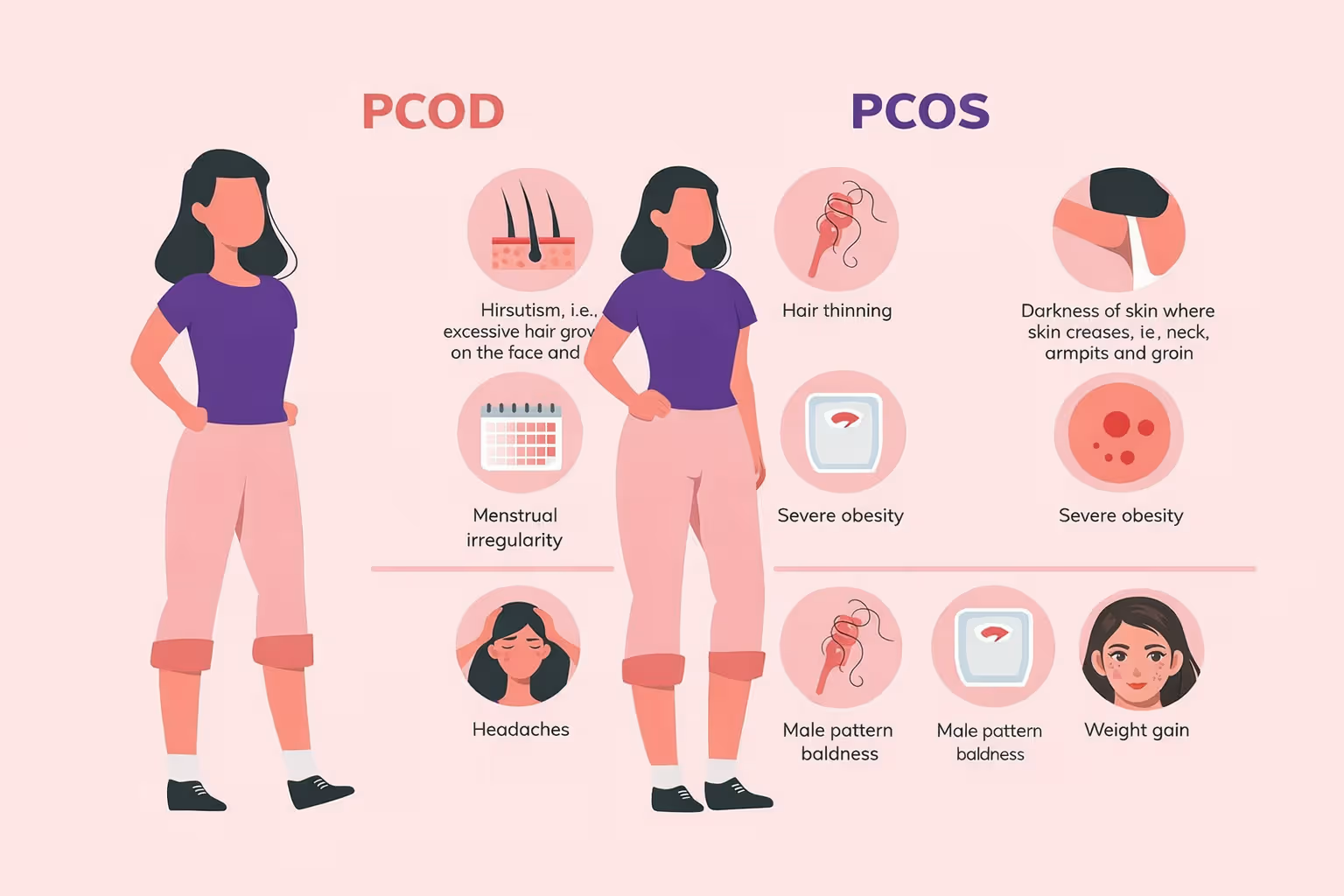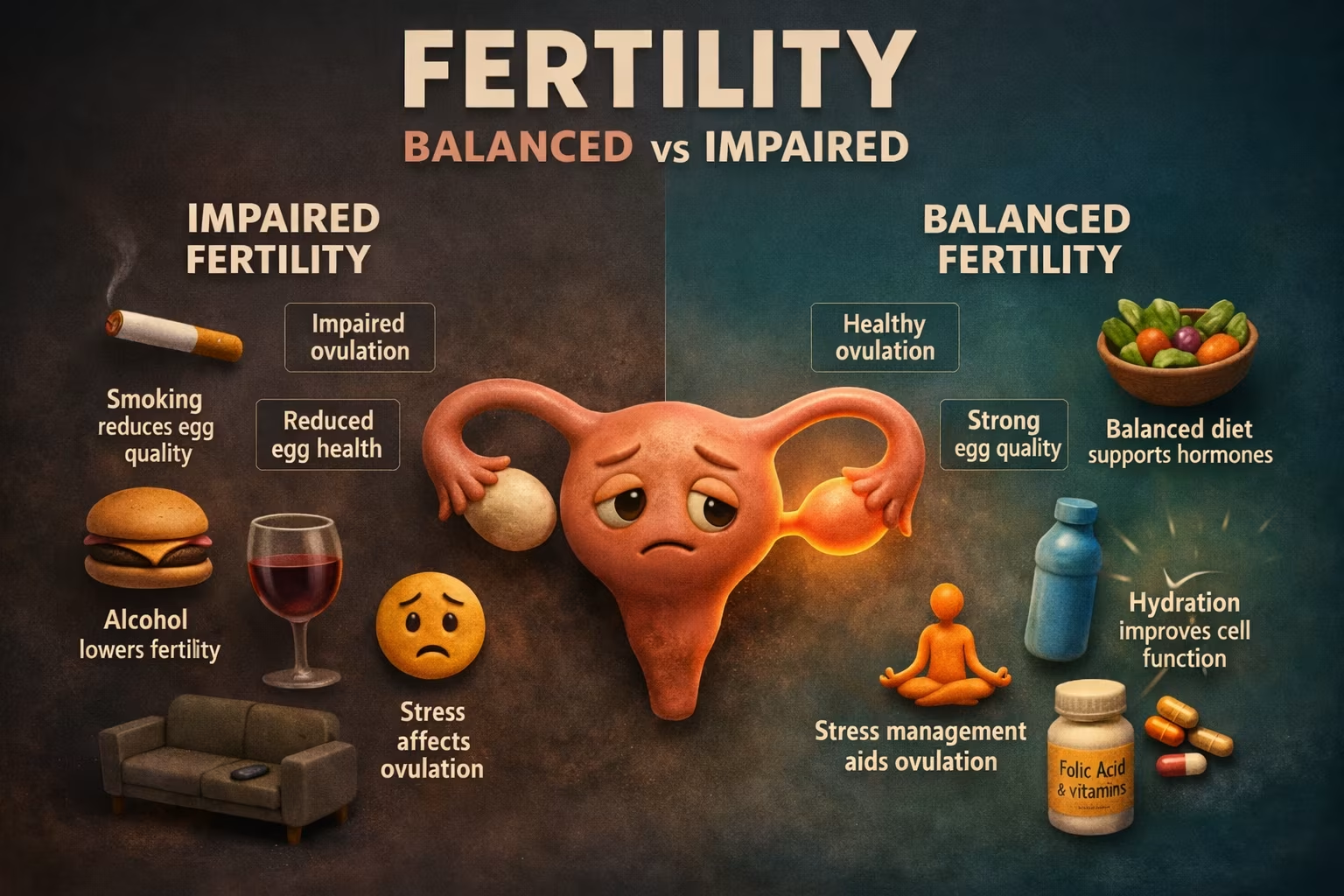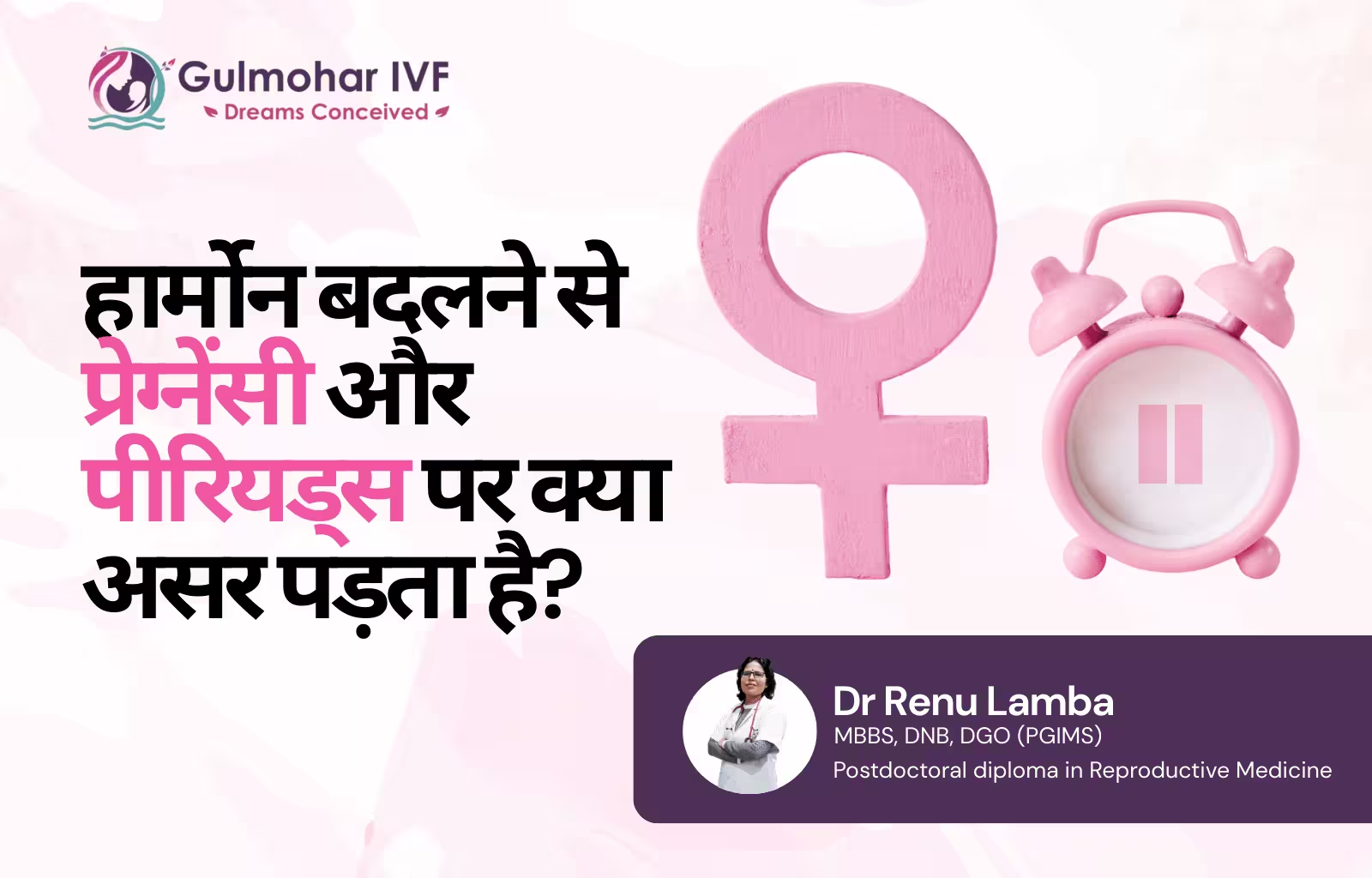In India, conversations about fertility often happen behind closed doors. Couples in their 20s and 30s usually rely on advice from elders, WhatsApp forwards, or “a friend of a friend” who claims to know the truth. Unfortunately, this half-knowledge can cause shock, stress, and even unplanned pregnancies.
At Gulmohar IVF in Panchkula, we regularly meet women who are surprised by a positive pregnancy test even though they believed their periods made them “safe.” Others come in anxious after experiencing bleeding, thinking pregnancy is impossible, when in reality they were already pregnant.
This confusion comes from deeply rooted myths. Let’s take them one by one.
Myth 1: “You can’t get pregnant during your period.”
Reality: The chance is lower, but it is never zero.
Many people assume bleeding equals safety. But the menstrual cycle is not always a textbook 28 days. For some women, cycles are as short as 21 days. This means ovulation can happen much earlier than expected.
Add to this the fact that sperm are survivors. They can live inside the female reproductive tract for three to five days. So if intercourse happens on the last days of bleeding and ovulation comes early, pregnancy is possible.
Think of it like crossing a busy road late at night. The number of cars is fewer, but the road is never completely empty. One sudden car can still surprise you. That’s how period sex works.
In Panchkula, we have seen several young couples shocked when pregnancy followed what they believed was a “safe period.”
Myth 2: “Bleeding always means you’re not pregnant.”
Reality: Not all bleeding is a period.
This is one of the most misleading beliefs. Research shows that up to 25 percent of pregnant women experience implantation bleeding in early pregnancy. This spotting happens when the fertilised egg attaches to the uterus lining, about 10–14 days after conception. It is usually light, pink or brown, and shorter than a period.
Apart from implantation, hormonal changes, ovulation spotting, or even stress can cause bleeding. So when couples assume “I bled, so I can’t be pregnant,” they may be ignoring an early pregnancy sign.
One young woman in Panchkula assumed she had her usual period. Later, nausea and a missed cycle made her test. It turned out the bleeding was implantation, not menstruation. This happens more often than many people realise.
Myth 3: “Ovulation always happens on Day 14.”
Reality: Your body doesn’t follow a fixed calendar.
Most schoolbooks teach that ovulation happens on Day 14 of a 28-day cycle. But in reality, ovulation can shift due to stress, travel, illness, weight changes, or conditions like PCOS. Even in healthy women, ovulation may vary from cycle to cycle.
The NHS notes that fertile windows can move by as much as a week. That means relying on a single “Day 14 rule” is unreliable.
Imagine ovulation like a train schedule. Some months the train arrives on time, some months it’s delayed, and some months it shows up early. If sperm are waiting at the station, the meeting still happens.
For couples planning pregnancy, this flexibility is actually hopeful, as chances extend beyond a rigid day. But for those avoiding pregnancy, it shows why myths can backfire.
Myth 4: “Period sex is a reliable method of birth control.”
Reality: Using your period as contraception is risky.
Relying on period sex for birth control is like using an umbrella full of holes. You may stay dry once or twice, but sooner or later you will get wet.
Period sex does not guarantee protection against pregnancy, especially for women with shorter or irregular cycles. And it definitely does not protect against sexually transmitted infections. The CDC clearly states that barrier methods like condoms, or medical options like pills and IUDs, are far more effective.
Unfortunately, we still meet couples who depend on this myth and then face unplanned pregnancies. A better approach is open conversation with a doctor about safe and effective methods.
Myth 5: “If you’ve had period sex before and didn’t get pregnant, you never will.”
Reality: Every cycle is different.
This is perhaps the most dangerous myth because it builds false confidence. Just because nothing happened once or twice does not mean the risk disappears. Biology writes a new script every month. Sperm survival, ovulation timing, and cycle length can all change.
Think of it like buying a lottery ticket. You may not win for nine rounds, but the tenth round could surprise you. Many couples who “got away with it” once later find themselves expecting.
The bigger picture
For Indian couples, the real issue is not just the myths themselves but the emotional stress they cause. Many women feel guilty when an unexpected pregnancy happens. Men often feel confused and blame themselves for not being careful. Family pressure adds another layer, making couples feel judged for “not knowing better.”
At Gulmohar IVF, we remind every couple that their bodies are unique, and myths are not facts. Whether you want to avoid pregnancy or plan for one, the key is understanding your cycle and seeking proper guidance.
What couples should actually do
- Use reliable contraception if avoiding pregnancy. Condoms, pills, or IUDs are far safer than relying on bleeding days.
- Track cycles and ovulation if planning pregnancy. Apps, kits, or simple calendars help, but remember cycles can shift. You can also read our detailed guide on Ovulation Tracking.
- Do not ignore unusual bleeding. If flow is lighter, shorter, or different, take a home pregnancy test after a few days.
- Consult a specialist if you are confused. Articles and advice can help, but a doctor’s opinion is most reliable.
Key statistics to remember
- Sperm can survive inside the female body for up to five days.
- Up to 25 percent of women experience implantation bleeding in early pregnancy.
- Menstrual cycles can range from 21 to 35 days, and ovulation timing can shift by a week or more.
These facts clearly show why myths do not hold up.
Related Reads
- After 35: What Panchkula Couples Must Know Before IVF
- The Diet That Boosts IVF Success
- Common Causes of Infertility: When to Seek a Specialist
- IVF in Panchkula: Complete Guide
Want to speak to a fertility expert? Book a private consultation with Dr. Renu Lamba at Gulmohar IVF: Click here.
Disclaimer: This article is for educational purposes only. Please consult a qualified fertility specialist for diagnosis and treatment options.


